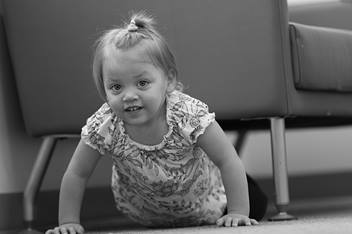Adolescent & Adult Congenital Heart Disease Transition Program
Transitioning Adolescents and Young Adults to Adult Congenital Heart Disease Care
The Adolescent & Adult Congenital Heart Disease program encompasses a heightened level of expertise, innovation, and advancements allowing us to provide our patients with life-long cardiac care within a caring, family-centered environment.
Congenital heart disease (CHD) (being born with a heart defect) is the most common birth defect in this country, affecting one out of every 120 babies. Due to major advances in medical and surgical care over the past 40+ years, more than 90% of these patients are living into adulthood. In 2005, it was estimated that for the first time in history, there are more adults living with CHD than children. Currently, there are estimated to be over 1 million adults with congenital heart disease in the United States and this number continues to grow about 5% each year.
Adolescents and adults with congenital heart disease have different things to think about compared to children. Because of these factors, special centers have been developed across the country to care for adolescents and adults, such as yourself, because most adult cardiologists are not trained in congenital heart disease. Nationwide Children’s Hospital is fortunate to have one such specialized program, allowing adolescents and adults to continue their cardiac care with us. This shift for adolescents from child-centered to adult-centered care is a gradual process that The Heart Center at Nationwide Children’s Hospital calls the Transition Program.
Goals of transitioning from child to adult heart care emphasize the importance of:
- Learning about your heart defect and the need for ongoing specialized heart care throughout adulthood
- Assuming responsibility of health-care
- Talking about concerns, symptoms, etc. to your cardiologist
- Taking medicine as directed (including antibiotics for dental procedures, tattoos, and piercings as needed for your heart defect)
- General information about birth control, pregnancy, and childbearing
- Lifestyle choices and exercise
- Insurance issues (medical and life insurance)
- Societal support and benefits
- Medication coverage
- Career or job counseling
- Advance Directive information
- Local and national patient support groups
- Psychosocial issues (depression, anxiety, etc.)
- Other adult health problems
Life-long Cardiac Care Importance
Over the past 20 years, more children with congenital heart disease are living to adulthood. The result of this is a large rise in the adult congenital heart disease (ACHD) population. Pediatric cardiologists are trained in congenital heart disease, therefore understand the anatomy and special needs of children born with heart defects. Adult cardiologists receive little or no training in congenital heart disease, therefore often do not understand the anatomy and concerns of adults born with heart defects. As patients with congenital heart disease become adults, they may develop new problems and should continue to be followed by a congenital heart specialist to keep their heart healthy. Across the United States, less than 10% of ACHD patients are receiving the recommended cardiac care. There are many reasons for this, including:
- In some hospitals, pediatric cardiologists are not allowed to care for patients over the age of 18
- Patients do not continue with follow-up care
- Lack of education about their heart defect
- Belief they are “fixed” or “cured”
- No longer “want to deal with heart disease”
- A perceived lack of cardiac symptoms
- Transportation issues
- Insurance barriers
- Financial issues
- Relocation
- Unsure how to find a new congenital heart specialist

